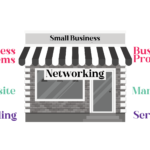Most people find being in business difficult and frustrating. They struggle to get ahead, fighting what they see as a constant battle. But it doesn’t have to be that way.
I love being in business. I love the excitement and discovery, the learning and growth. I love the challenges and strategies, the exhilaration of success and the satisfaction of overcoming obstacles and getting ahead.
The reason I love business is that I see it as a game. The aim of any game is to win. When you treat business as a game, you approach it in a different manner. Playing to win at business means that you learn from your mistakes, you try different strategies, you learn to play better, you explore new ideas, new methods and new strategies.
When you get knocked down you get back up again. You play harder and smarter. You are focused on getting ahead. Making your way up the ladder of success until you stand triumphantly at the top and then you focus on staying there.
The other thing that I love about games is they are fun. And business should be too. If you can’tnjoy being in business, you shouldn’t be in business. If you are not enjoying playing the game of business, you will end up as a cranky, bitter and twisted individual that has wasted lots of time and money doing something that brings them little pleasure.
Here are my rules for playing the game of business, playing your biggest game and getting the most out of the experience.
I have split this into 3 sections so that it’s easy for you to understand and play the game.
1. Getting into the game
2. Playing the game
3. Getting ahead of the game
1. Getting into the game
Got a great idea that you know the market is just dying to get their hands on? Sick of working for a manic dictator and ready to chance your hand at making your own way in the world? Ready to pursue your dream of being a rich and famous entrepreneur?
Lots of people are in the same boat as you and the reality is about 80% of them will fail. The main reason they will fail is that they head down this path with blind optimism and excitement for what is possible, reacting and adapting to circumstance’s as they unfold until they crash into an insurmountable barrier that sinks the ship or sink slowly into a scenario where they are working long hours for no or very little pay. They end up stressed out, burnt out and kicked out. They then head back to a day job, their dreams of business success in tatters.
If you don’t want this to be you, take the time to explore these tips for playing a bigger game in business and build a solid foundation for your success.
SET UP FOR SUCCESS
Being clear on what you want. What you want is one thing, but being crystal clear on why we want it is what really pushes us to achieving it. Get really clear on why it’s important, why it’s a must do and there is every chance it will happen. So take a while to write down WHY you are going into business and what it is that you want to achieve. It will most certainly revolve around one of two things: The first is FREEDOM – the desire to do what you want or have enough money to do what you want with whom you want when you want. The second is FULFILLMENT – the desire to do something worthwhile, to contribute, to be successful. When you have clearly mapped your reasons for being in business put it in a frame and keep it close by so that it serves as a reminder of why you’re still working at 11pm at night or why you haven’t had a holiday for two years, or why you are paying staff a fair wage and receiving a pittance yourself.
CONTAIN COSTS
No you don’t need a company car, helicopter, office, wiz bang telephone system, mobile and the latest and best computer. The reason you hear why people like Steve Jobs start their businesses in a garage (or in a spare room) is because costs are the thing that’s going to kill your start up quickest. Avoid adding costs at any cost. Be as frugal as possible, bargain and negotiate at every single turn for the best deal. Do not spend any money that you don’t have to. Learn to get by on the smell of an oily rag. For meetings use someone else’s office or boardroom or use a serviced office. Get a mobile phone and plan that does the job but doesn’t cost you an arm and a leg. In the beginning you don’t even need business cards or a website because people will buy 1. YOU – the passion you have for what you do or the product or facility you provide. 2. – The relationship they have with YOU, so trust, respect and credibility come into play. Yes it IS all about YOU.
DON’T DO STUFF
Initially you have to do everything. You are sales, marketing, operations, accounts, cleaner, CEO, employer, employee, but as you progress do not continue to do the things you’re not good at. If you can spend an hour making a sale that’s worth hundreds or thousands of dollars then don’t waste your time doing your own bookkeeping (which you hate and you can’t get to add up anyway) when you can pay someone else to do it in a fraction of the time. Don’t spend 2 days sorting out your website when a 19 year old gen y can do it in 15 minutes for $50 bucks. Choose carefully where you allocate your most valuable asset, your time, its easy to get bogged down in the nitty gritty when you should be doing what you do best.
PLAY HARD
If you are going to be a big success, you have to put in a big effort. In any game that you want to win you have to play hard. So don’t go at it half hearted, give it everything you’ve got. You don’t want to be left wondering whether your business might have been more successful if you had tried a little harder, put in a little more effort, stayed at it a little bit longer. If you are going to play the game of business play all in and flat out. Its easy to look at successful people like Richard Branson and think “I would love that lifestyle.” Trust me, that lifestyle didn’t come easy, he worked hard at it and so does every successful entrepreneur. They got to where they are because they worked hard to get there. There are few shortcuts in business. It takes effort but if you are clear on what you want out of it and stick at it, it will be worth it.
2. Playing the game
SMASH YOUR GOALS
The big problem in business is not that we don’t have goals. We all have goals, targets, visions, plans dreams and desire for what we want to achieve. Unfortunately these often get lost in the day to day operations, meetings, proposals and management of the business. We have all at some stage taken time out to think about and maybe even map the future of our business. Very few businesses actually manage to execute on that map completely.
So how do you get ahead of the game? It’s actually easier than you think. You just need to create a plan and execute on that plan. The important part here is execute, most people just don’t know how to pull it all together. Here are some great tips for making sure you execute on your plan and smash your business goals from my new book: “play a bigger game – how to achieve more, be more, do more and have more.”
PROACTIVE NOT REACTIVE – The first thing you need to do is recognise that it’s easy to get stuck in old habits, reacting to market pressures, sales reports, employee behaviours and technology shifts. Real success lies in being proactive not reactive. To do this you need to take stock of where you really are (no fluff or nonsense, just a good solid reality check) and then decide exactly where you want to be.
DO IT
In a business world where trends, technologies, markets and customer needs are changing at an ever increasing pace, 5 year plans just don’t cut it. In fact 2 year and even 1 year plans can be useless. I prefer to work in 90 day blocks. 90 days gives you enough time to get some momentum going but not lose touch by sticking it on the backburner and get lost or swallowed up by everything else. Ask yourself: ‘What do I want to focus on achieving in the next 90 days? In fact what would be the next best thing for my business?’ Then get cracking on that, making sure it gets done. That’s how you get ahead and make progress.
NEXT BEST THING
False ranking is the best way to find what is really important to your business right now. It’s the process of writing down the 5 things you think might be the right things and then comparing them one by one against each other. It’s a fantastic exercise and you will be surprised at what shows up at the top. This is because we get below the surface to see what’s really important.
THE DEVIL IS IN THE DETAIL
Describe the result that you want in 90 days as clearly as possible. The more detailed the picture of what you want to achieve the more likely it will become real. What your mind can picture, your hands can create. Poor picture equals poor result.
WHY, WHY, WHY
If it’s not important, it won’t get done. So come up with 3 clear reasons why you simply must achieve this goal. These reasons must be strong and well-founded because they are what’s going to keep you going when the going gets tough, when you feel like everything is going off the rails. These three whys will get you back on track by reminding you that you simply must get this done. There is no other option.
TAKE ACTION NOT NOTES
Next you need to create an action plan. What are the key things that need to be done in the next 90 days? Three good solid actions is what I work with and I back these up with clear deadlines or milestones. This allows me to break the bigger goal down into smaller key steps and measure the progress. If I miss a deadline or milestone, I need to review and refine and reset. This gives me momentum that pushes me toward smashing the goal.
IT’S NOT OVER
One clear mistake that businesses make in setting goals, is they forget to consider the support available and the obstacles they come up against. Pretty much every goal you are likely to want to achieve has probably been completed by someone else at some time. Do your research, find out what works best. Get some help if need be. Find out as much information as you can. There are few things worse than stumbling blindly in pursuit of a goal that you don’t understand. If need be buddy up with someone that will help you out or get a mentor. Also define the obstacles that might get in the way, lack of time, resources, motivation or assistance and plan for these, so that when you hit the speed bump you are not thrown off the chase, you can just readjust and keep pushing forward.
GET GOING
That’s it, now get cracking. Execute on each of the actions, meet the deadlines and milestones and then watch as you knock your goal out of the park. Persistent forward progress comes from knowing where you’re going and having a clear plan on how you are going to get there, making your business better 90 days at a time.
3. Get ahead of the game
PURPOSE OF A BUSINESS
I believe the purpose of a business is to create and keep customers. Most people would say it is to make money or make a profit. However, ultimately its customers or clients that help a business survive. When you get the margins on your products right (let’s say you make $100 from every customer) and you have 1000 customers, that’s $100,000 dollars, if you can keep those customers coming back and create 1000 new customers you have doubled your profits to $200,000. Customers are the key, turn them into raving fans and the dollars will look after themselves. It worked for Richard Branson and Virgin, it worked for Steve Jobs and Apple, it works for Harley Davidson, Disneyland and Nike and it has worked for me.
Here are some quick and simple ways to get ahead of your competition.
SPEED
Find ways to be faster than your competitors. How quick do you answer the phone, send an order, reply to an email, deliver your product or service? Take some time to experience the speed of service from the customer’s point of view and then find ways to do business faster. Take out the bottlenecks. In the age of speed, customers will appreciate it when you can not only do it well, but also do it quickly.
FLEXIBILITY
Another great way to set yourself apart from your competition is to be more flexible. I read a story recently of how John McGrath from the very successful McGrath real estate companies was the most flexible when it came to organizing open houses for buyers. Most real estate companies only did open houses when it suited them: 9-5 Monday to Friday and Saturday Mornings. John McGrath did them when it suited his customers, so after work, on Sundays in the evenings. No wonder he made more sales. Being flexible gives you more opportunities to do business (be careful though, it can also add more costs).
VALUE
Find ways that you can add value, that don’t cost heaps. Things like putting a few lollies in with a delivery or including a low cost give away. Little surprises that make your business appear generous and fun. This can be the difference between choosing you or a competitor next time. If you are providing a service rather than a product, do something extra, look for ideas that will help your customers out, make recommendations, be seen as someone who takes an active interest in their success, these gestures will likely be replicated which means more business for you.
MAKE IT FUN
Business can be a drag if you are constantly in “busy” mode. It’s easy to get swallowed up in the daily grind, doing what you need to do to get by. Before you know it another year has slipped by and you’re wondering where the time went. So make sure that you create systems to put the fun back in to business. Competitions are a great way to do this, give an award for “idea of the month” I do this in my business, its fun and I get some great ideas that help me make my businesses better. Not only from my staff but also from some of my customers. Always change the prize to keep it interesting, bottle of champagne, movie tickets, dinner for two, whale watch cruise, weekend away are just some of the ones I have used.
We also have a monthly wine down where we finish an hour early on a Friday and have a glass of wine or two. In this hour we talk about the business, what was fun and what was a drag and how we can change it. Sometimes we invite our customers and get their thoughts and ideas as well. Not only is this a good thing for the culture of the business and team but it also generates ideas worth thousands of dollars.
Come up with some ways to keep the fun in your business.
PLAY
Play the game, play it hard, have fun in the process and you will look back in the years to come on a part of your life that has been an exciting adventure, that has given you something far more valuable than an income, something that has shaped who you are and what you stand for. There are few bigger games in life than that!
Rowdy McLean
About the author
Rowdy challenges the average and interrupts the status quo. He loves the game of business and life! Possessing a steely determination to succeed, he has spent years researching the key drivers of success, achievement and outstanding results, and knows what works. Changing attitudes, providing the motivation to achieve results and getting people to execute effectively are the things he does best.
Playing a Bigger Game is Rowdy McLean’s life story, overcoming adversity and challenges to achieve remarkable results. He has played professional sport, ran marathons and climbed mountains and broken world records. At 24 he started his own communications company, and retired 10 years later. As a CEO he has engineered company turnarounds and as a successful entrepreneur, he now runs 5 companies of his own. He works with organisations across the globe, thousands of people attend his seminars each year. He is the author of several books including the internationally acclaimed “Play a Bigger Game”. For more information visit www.rowdy.com.au
This is a sample chapter from the fantastic business guide book, How To Start A Business With Little Or No Cash. The definitive handbook to starting a business with very little financing. With pages filled with valuable, practical, jargon-free advice, this is the entrepreneurs survival guide on getting a business up and running without breaking the bank. Click here for your copy.







